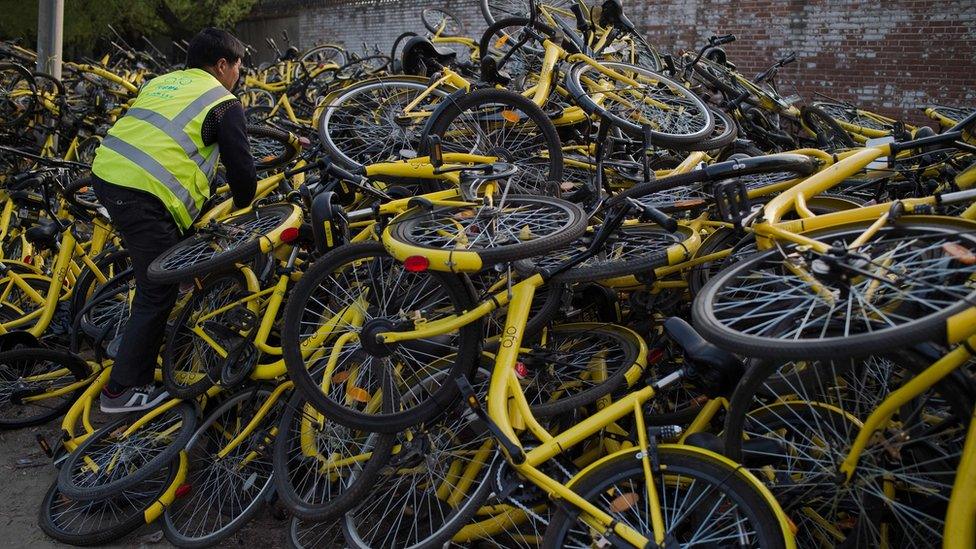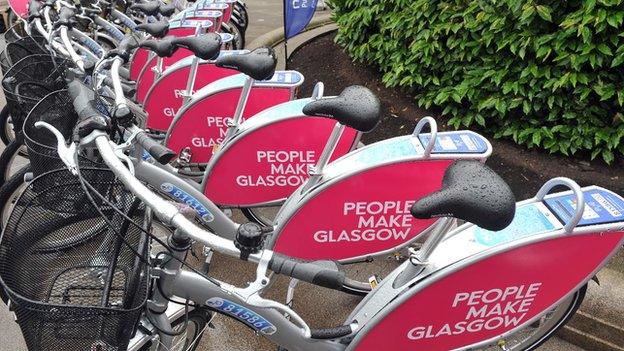Chinese bike share firm goes bust after losing 90% of bikes
- Published

The bike-sharing phenomenon allows users to leave their bikes anywhere. The bikes pictured belong to Ofo - one of the firms that is growing fast.
A Chinese bike-sharing company has gone out of business after 90% of its bikes went missing in the first five months.
Chongqing-based Wukong Bikes said the bulk of its 1,200 two-wheelers were lost or stolen.
Unlike rivals, the firm did not put GPS systems on its bikes and by the time it realised the technology was necessary, money had run out.
It is believed to be the first bankruptcy of China's booming bike-sharing industry.
A free ride
Billed as "Uber for bikes", China's tech giants have been funding sophisticated bike hire businesses as a potential solution to congested roads.
Tencent-backed Mobike and Ofo, supported by Alibaba and Xiaomi, are dominating the market.
But Wukong was a much smaller player, aimed mainly at students in the city.
Founder Lei Houyi told local media that as well as the lack of GPS, his firm had struggled because its bikes were of inferior quality to those used by its larger competitors and were damaged too easily.
He added that while users were initially charged, Wukong resorted to giving away bicycles rides for free to try and compete with other players.

The BBC's Stephen McDonell gets a handle on two bike hire offerings
China bike-sharing: How it works
The concept is similar to bike-sharing schemes that were popularised in cities including London and Paris.
But in China, rather than having fixed docking stations, all the firms are app based.
In most cases, bikes are fitted with a GPS chip, allowing users to locate a bike. They pay for the hire with their smartphones and then unlock it - sometimes using a QR code.
After they have finished the journey, customers can leave the bike anywhere.
That has proved problematic at times, with bikes abandoned in remote locations where another rider is unlikely to find it or want it.
Mobike has tried to get around this problem by providing cash or credit rewards for users who hire these bikes, in the hope they will end up somewhere more accessible.
And the huge uptake of the scheme has caused conflicts on both roads and pavements as cyclists vie for space to move around, especially in Shanghai and Beijing.
Similar schemes have opened up in Hong Kong and Singapore with Ofo planning to launch in Cambridge in the UK.

- Published18 March 2017
